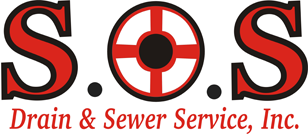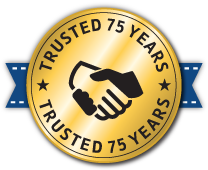Clogged drains can be a frustrating headache, and chemical drain cleaners often seem like the quickest, easiest fix. These powerful solutions promise to dissolve stubborn blockages in mere minutes, making them a go-to for busy homeowners.
But could this quick fix be doing more harm than good? Beneath the surface, these cleaners can pose serious risks—not just to your pipes, but also to your health and the environment. Over time, they may weaken or corrode plumbing, turning a small clog into a costly repair.
If you’ve ever wondered whether there’s a safer, better approach, this guide will reveal the risks of chemical cleaners and explore smarter alternatives to keep your pipes flowing freely.
What Are Chemical Drain Cleaners?
Chemical drain cleaners are powerful, concentrated solutions designed to dissolve clogs in pipes. They typically contain a combination of highly corrosive chemicals such as sodium hydroxide (lye) or sulfuric acid, along with other ingredients like detergents and solvents.
These potent ingredients work by breaking down organic materials, such as hair and food particles, which can accumulate in drains and cause blockages.
Importance of Right Usage
Chemical drain cleaners may seem like a convenient and effective solution for clogged drains, but their usage can have serious consequences. Here are some reasons to consider alternative methods:
- Health hazards: These cleaners contain harsh chemicals that can cause skin irritation, respiratory problems, and even chemical burns if not handled properly.
- Environmental impact: When flushed down the drain, these chemicals can contaminate water sources and harm aquatic life. They also contribute to air pollution during the manufacturing process.
- Pipe damage: The corrosive nature of chemical drain cleaners can weaken or even dissolve pipes over time, leading to leaks and costly repairs.
- Incomplete results: In some cases, these cleaners may not completely dissolve the clog, leaving a residue that can build up and cause future blockages.
To avoid these risks, it’s important to use chemical drain cleaners cautiously and carefully follow the instructions on the label.
Can Chemical Drain Cleaners Damage Your Pipes?
The short answer is yes. While chemical drain cleaners may provide a quick fix for clogged drains, they can also cause long-term damage to your pipes. These potent solutions are designed to dissolve organic material, but they can also eat away at the materials that make up your plumbing system.
Over time, repeated use of chemical drain cleaners can weaken or corrode pipes, causing leaks and potentially leading to water damage in your home. In severe cases, these cleaners can even create holes in pipes, requiring expensive repairs or even full replacements.
Furthermore, if you have older or more fragile pipes made from materials such as PVC or clay, chemical drain cleaners can be especially damaging. The corrosive chemicals in these cleaners can eat away at these pipes, causing them to deteriorate and potentially collapse.
The Risks of Chemical Drain Cleaners
In addition to causing damage to your pipes, chemical drain cleaners can also pose risks to your health and the environment. These powerful solutions contain harsh chemicals that can cause skin irritation, respiratory problems, and even chemical burns.
When flushed down the drain, these chemicals can also contaminate water sources and harm aquatic life. They also contribute to air pollution during the manufacturing process.
Furthermore, improper use of chemical drain cleaners can lead to incomplete results, leaving behind residue that can build up over time and cause future clogs. This can result in a vicious cycle of relying on chemical cleaners for every minor clog, which only exacerbates the potential risks.
Warning Signs You Should Avoid Chemical Cleaners
While chemical drain cleaners may seem like a quick and easy solution for clogged drains, there are warning signs that indicate you should avoid using them. These include:
- Frequent clogs: If you find yourself reaching for chemical cleaners more often than not, it could be a sign of a bigger underlying issue with your plumbing. Repeated use of these products can also lead to further damage and costly repairs.
- Old or fragile pipes: As mentioned before, if you have older or more delicate pipes in your home, using chemical drain cleaners can cause even more harm. It’s best to opt for alternative methods that are gentler on these types of pipes.
- Slow drainage: Chemical drain cleaners may not completely dissolve the clog, resulting in slow drainage that can indicate a larger blockage. In these cases, it’s best to seek professional help rather than relying on chemical solutions.
- Strong odors: If you notice a strong chemical smell coming from your drains after using these products, it’s important to take precautions and avoid further use. These odors can be harmful to your health and also indicate that the chemicals are lingering in your pipes.
- Recurring clogs: If the same drain keeps getting clogged despite using chemical cleaners, it’s possible that there is a larger issue with your plumbing system. Repeatedly using these potent solutions can make matters worse and potentially lead to pipe damage.
These warning signs are indications that you should avoid using chemical drain cleaners and instead seek alternative methods or professional help.
Safer Alternatives to Chemical Drain Cleaners
While chemical drain cleaners may seem like a quick and convenient solution for clogged drains, there are safer alternative methods that can be just as effective. Here are some options to consider:
Boiling water:
One of the simplest and most natural ways to unclog a drain is by pouring boiling water down it. This method works best for minor clogs caused by grease or food particles. Simply boil a pot of water and carefully pour it down the drain, repeating if necessary. Just be cautious not to use this method on porcelain or ceramic sinks, as the extreme temperature can cause them to crack.
Baking soda and vinegar:
This classic combination is a popular alternative to chemical drain cleaners. To use it, pour half a cup of baking soda down the drain, followed by a cup of vinegar. The mixture will fizz and bubble, helping to break up any clogs. Let it sit for about 15 minutes before flushing with hot water.
Plunger:
A simple plunger can also do wonders in unclogging drains. Be sure to wet the rim of the plunger before using it on the drain and creating a seal. Then, pump up and down several times to create suction, which can help dislodge the clog. This method works best for larger blockages in sinks and tubs.
Drain snake:
If the clog is too stubborn for a plunger, using a drain snake (also known as an auger) can be effective. This tool has a long, flexible cable that can reach deep into pipes to clear out debris or hair causing the blockage. Simply insert the end of the snake into the drain and twist or push until you feel resistance. Then, pull it back out and dispose of any debris caught on the end.
Enzyme-based cleaners:
For more stubborn clogs, enzyme-based cleaners can be a gentler alternative to chemical drain cleaners. These products use natural enzymes and bacteria to break down organic material in your drains without causing harm to your pipes or the environment. They may take longer to work but are a safer option for regular maintenance.
Professional plumbing services:
When all else fails, it’s best to seek professional help from a licensed drain cleaner. They have specialized tools and techniques that can effectively clear out any clog without damaging your pipes. Plus, they can provide insight into any underlying issues with your plumbing system and offer solutions for long-term prevention.
By using these safer alternatives instead of relying on chemical drain cleaners, you not only protect your health and the environment but also potentially save money on costly repairs in the future.
Preventative Measures to Avoid Clogs
To avoid the hassle and potential risks of clogged drains, it’s important to take preventative measures. This includes regularly cleaning out sink stoppers and screens, avoiding dumping grease and oils down drains, and properly disposing of food scraps. Additionally, using a drain catcher in showers and tubs can prevent hair and other debris from causing clogs.
It’s also recommended to schedule regular professional plumbing inspections to catch any potential issues before they turn into major problems. By taking these simple steps, you can keep your drains clear and functioning properly while avoiding the need for chemical drain cleaners altogether.
Choose S.O.S Drain & Sewer Services for Your Commercial Cleaning Needs
Keeping your commercial pipelines running smoothly is essential, and that’s where we come in! At S.O.S Drain & Sewer Services, we’re here to make sure your business in Minneapolis and St. Paul gets reliable, expert care for all your drain and sewer cleaning needs.
We get it – a clogged or malfunctioning drain can throw a wrench in your daily operations and cost you valuable time and money. That’s why we provide quick, efficient, and affordable solutions to keep your business flowing without a hitch.
Our services include everything from regular preventive maintenance to emergency repairs for those unexpected surprises. Using the latest tools and techniques, we pinpoint and fix issues in your commercial pipes with minimal disruption to your day.
At S.O.S Drain & Sewer Services, we believe in keeping things simple – that means upfront pricing with no hidden fees or nasty surprises. Our priority is providing high-quality service at a fair price so you can focus on running your business without worrying about costly plumbing problems.
Don’t wait for a small issue to turn into a big headache. Reach out to S.O.S Drain & Sewer Services today for all your commercial drain and sewer cleaning needs. We’re available 24/7 and ready to help businesses in the Minneapolis and St. Paul area get back to business as usual!
FAQs
Can most chemical drain cleaners damage drain pipes?
Yes, most chemical drain cleaners can damage drain pipes over time. The strong chemical reaction they create may corrode metal pipes, weaken plastic pipes, or cause wear in PVC pipes.
Are liquid drain cleaners safe for a kitchen sink or bathroom sink?
Liquid drain cleaners aren’t always safe for a kitchen sink or bathroom sink. They can harm pipes and fixtures or even worsen clogs. It’s better to opt for a natural drain cleaner or enzymatic drain cleaners for safety.
Can chemical drain cleaners harm a shower drain?
Yes, using chemical drain cleaners in a shower drain can damage both metal pipes and plastic pipes. The products may erode the pipes’ surfaces or cause cracks in PVC pipes through repeated use.
Are natural and enzymatic drain cleaners better alternatives?
Natural drain cleaners and enzymatic drain cleaners are often safer for your drain pipes, kitchen sinks, and bathroom sinks. These options avoid the harsh chemical reaction that damages pipes, making them a gentler choice for your plumbing.








